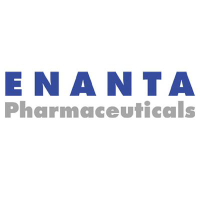
We could not find any results for:
Make sure your spelling is correct or try broadening your search.

| Strike | Bid Price | Ask Price | Last Price | Midpoint | Change | Change % | Volume | OPEN INT | Last Trade |
|---|---|---|---|---|---|---|---|---|---|
| 2.50 | 1.50 | 5.90 | 0.00 | 3.70 | 0.00 | 0.00 % | 0 | 0 | - |
| 5.00 | 0.95 | 2.95 | 1.20 | 1.95 | 0.00 | 0.00 % | 0 | 47 | - |
| 7.50 | 0.10 | 0.30 | 0.30 | 0.20 | 0.10 | 50.00 % | 7 | 14 | 12/20/2024 |
| 10.00 | 0.05 | 2.00 | 0.05 | 1.025 | 0.00 | 0.00 % | 0 | 57 | - |
| 12.50 | 0.05 | 2.00 | 0.05 | 1.025 | 0.00 | 0.00 % | 0 | 26 | - |
| 15.00 | 0.50 | 2.00 | 0.50 | 1.25 | 0.00 | 0.00 % | 0 | 20 | - |
| 17.50 | 1.23 | 0.45 | 1.23 | 0.84 | 0.00 | 0.00 % | 0 | 0 | - |
| 20.00 | 1.30 | 2.00 | 1.30 | 1.65 | 0.00 | 0.00 % | 0 | 14 | - |
| 22.50 | 0.00 | 2.00 | 0.00 | 0.00 | 0.00 | 0.00 % | 0 | 0 | - |
| 25.00 | 0.00 | 2.00 | 0.00 | 0.00 | 0.00 | 0.00 % | 0 | 0 | - |
| Strike | Bid Price | Ask Price | Last Price | Midpoint | Change | Change % | Volume | OPEN INT | Last Trade |
|---|---|---|---|---|---|---|---|---|---|
| 2.50 | 0.00 | 2.00 | 0.00 | 0.00 | 0.00 | 0.00 % | 0 | 0 | - |
| 5.00 | 0.10 | 4.20 | 0.00 | 2.15 | 0.00 | 0.00 % | 0 | 0 | - |
| 7.50 | 0.20 | 4.00 | 1.10 | 2.10 | 0.00 | 0.00 % | 0 | 4 | - |
| 10.00 | 3.10 | 6.00 | 0.75 | 4.55 | 0.00 | 0.00 % | 0 | 20 | - |
| 12.50 | 5.20 | 8.00 | 2.30 | 6.60 | 0.00 | 0.00 % | 0 | 12 | - |
| 15.00 | 7.20 | 11.00 | 2.10 | 9.10 | 0.00 | 0.00 % | 0 | 4 | - |
| 17.50 | 9.50 | 13.50 | 0.00 | 11.50 | 0.00 | 0.00 % | 0 | 0 | - |
| 20.00 | 11.60 | 16.00 | 0.00 | 13.80 | 0.00 | 0.00 % | 0 | 0 | - |
| 22.50 | 15.10 | 18.50 | 0.00 | 16.80 | 0.00 | 0.00 % | 0 | 0 | - |
| 25.00 | 17.00 | 21.00 | 0.00 | 19.00 | 0.00 | 0.00 % | 0 | 0 | - |
 dewophile
5 hours ago
dewophile
5 hours ago
 alertmeipp
10 hours ago
alertmeipp
10 hours ago
 alertmeipp
12 hours ago
alertmeipp
12 hours ago
 wags23
15 hours ago
wags23
15 hours ago
 Lishur
1 day ago
Lishur
1 day ago
 go seek
1 day ago
go seek
1 day ago
 dewophile
1 day ago
dewophile
1 day ago
 go seek
1 day ago
go seek
1 day ago
 vinmantoo
1 day ago
vinmantoo
1 day ago
 Lishur
1 day ago
Lishur
1 day ago
 dewophile
2 days ago
dewophile
2 days ago
 go seek
2 days ago
go seek
2 days ago
 alertmeipp
2 days ago
alertmeipp
2 days ago
 go seek
2 days ago
go seek
2 days ago
 alertmeipp
2 days ago
alertmeipp
2 days ago
 dewophile
2 days ago
dewophile
2 days ago
 DC15
2 days ago
DC15
2 days ago
 dewophile
2 days ago
dewophile
2 days ago
 alertmeipp
2 days ago
alertmeipp
2 days ago
 vinmantoo
2 days ago
vinmantoo
2 days ago
 dewophile
2 days ago
dewophile
2 days ago
 DC15
2 days ago
DC15
2 days ago
 alertmeipp
3 days ago
alertmeipp
3 days ago
 wags23
3 days ago
wags23
3 days ago
 dewophile
3 days ago
dewophile
3 days ago
 Lishur
3 days ago
Lishur
3 days ago
 alertmeipp
3 days ago
alertmeipp
3 days ago
 Lishur
3 days ago
Lishur
3 days ago
 alertmeipp
3 days ago
alertmeipp
3 days ago
 vinmantoo
3 days ago
vinmantoo
3 days ago
 Lishur
3 days ago
Lishur
3 days ago
 alertmeipp
3 days ago
alertmeipp
3 days ago
 alertmeipp
3 days ago
alertmeipp
3 days ago
 dewophile
3 days ago
dewophile
3 days ago
 alertmeipp
4 days ago
alertmeipp
4 days ago
 Lishur
4 days ago
Lishur
4 days ago
 wags23
5 days ago
wags23
5 days ago
 alertmeipp
5 days ago
alertmeipp
5 days ago
 willyw
5 days ago
willyw
5 days ago
 vinmantoo
5 days ago
vinmantoo
5 days ago
 dewophile
6 days ago
dewophile
6 days ago
 go seek
6 days ago
go seek
6 days ago
 alertmeipp
6 days ago
alertmeipp
6 days ago
 dewophile
6 days ago
dewophile
6 days ago
 go seek
6 days ago
go seek
6 days ago
 dewophile
7 days ago
dewophile
7 days ago
 alertmeipp
1 week ago
alertmeipp
1 week ago

It looks like you are not logged in. Click the button below to log in and keep track of your recent history.
Support: 1-888-992-3836 | support@advfn.com
By accessing the services available at ADVFN you are agreeing to be bound by ADVFN's Terms & Conditions